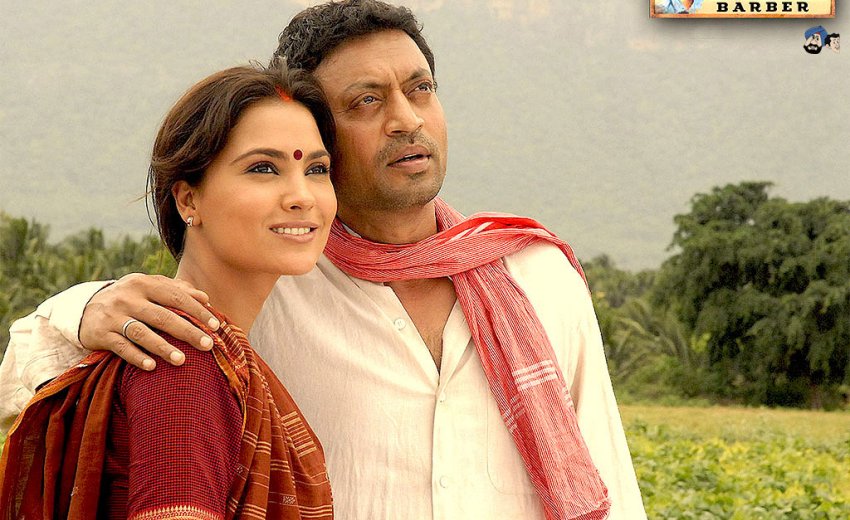 Guess what’s common between Billu Barber, Slumdog Millionaire, Singh Is Kinng, Jodhaa Akbar and Krazzy4?
Guess what’s common between Billu Barber, Slumdog Millionaire, Singh Is Kinng, Jodhaa Akbar and Krazzy4?
Simple! All the films have been mired in controversy, days before they were set to hit the screens. The President of the Salon and Beauty Parlours’ Association, Uday Takke, said they found the word ‘barber’ objectionable in the title Billu Barber and they wanted it to be changed to ‘hairdresser’. Producer Shah Rukh Khan had no choice but to drop the word ‘Barber’ from the title.
In fact, PILs, protests and defamation suits just before a film’s theatrical release seems to have become a norm these days. It’s also when a filmmaker is at his/her most vulnerable and has to give in to all kinds of demands. Sample this: The Madras High Court kept Aamir Khan starrer Ghajini on hold after the producer of the original Tamil version filed a copyright violation suit (the day before the film released).
The Delhi Sikh Gurdwara Management Committee (DSGMC) sought a ban on Akshay Kumar-starrer Singh is Kinng for allegedly ridiculing the Sikh community. The film’s promos, showing a Sikh character wearing a turban while sporting a French cut beard was later withdrawn. Rajputs of Rajasthan blocked the screening of Ashutosh Gowarikar’s Jodhaa Akbar, accusing the filmmaker of distorting history.
 Madhuri Dixit’s comeback film Aaja Nachle ran into rough weather following ‘offending lyrics’ in its title song. There were widespread protests by Dalits over the song and Haryana, Punjab and Uttar Pradesh banned the movie. The producers ultimately had to drop that line from the song, following which the ban was revoked. Jo Bole So Nihal invited protests from Sikhs for misusing their holy slogan ‘Bole So Nihal’. Madhur Bhandarker’s Fashion faced objection from the Delhi Commission for Women saying that the film features a character inspired by Gitanjali Nagpal’s fall from grace and that she was “too vulnerable” for her life to be exposed by the movies. Mangal Pandey —The Rising, was also criticised for distorting historical facts by showing the protagonist romancing a prostitute. Ketan Mehta’s Rang Rasiya is courting controversy for its alleged vulgarity.
Madhuri Dixit’s comeback film Aaja Nachle ran into rough weather following ‘offending lyrics’ in its title song. There were widespread protests by Dalits over the song and Haryana, Punjab and Uttar Pradesh banned the movie. The producers ultimately had to drop that line from the song, following which the ban was revoked. Jo Bole So Nihal invited protests from Sikhs for misusing their holy slogan ‘Bole So Nihal’. Madhur Bhandarker’s Fashion faced objection from the Delhi Commission for Women saying that the film features a character inspired by Gitanjali Nagpal’s fall from grace and that she was “too vulnerable” for her life to be exposed by the movies. Mangal Pandey —The Rising, was also criticised for distorting historical facts by showing the protagonist romancing a prostitute. Ketan Mehta’s Rang Rasiya is courting controversy for its alleged vulgarity.
Filmmaker Aziz Mirza feels, “some people might have valid objections but then they should object at the right time. Objecting just before the release is absolutely wrong. There is no valid reason to wait for the last moment and put the producer in soup in the last minute.” Filmmaker Vikram Bhatt says, “All such petitions have happened in the last week of the respective film releases to gain more attention. Rakesh Roshan’s Krazzy 4 songs were on the television for months before the release, so people who had issues should have raised their voice then.  Eventually Rakesh Roshan had to give Rs 2 crore to avoid further problems. In case of Billu Barber, I personally believe that why one should feel offended by a particular caste? (Barber refers to a caste like nai or hajaam. And the association says that they are not barbers by caste). This is casteism and they should be held for having such feelings.” Agrees filmmaker Kamlesh Pandey, “We are becoming immature by the day. A filmmaker can’t make everybody in a country of billions happy. Somebody will be unhappy but that doesn’t mean people start filling PIL on irrelevant issues. People who want publicity or money raise such meaningless issues. If this continues, we filmmakers won’t be able to work at all. Everybody is becoming a censor board it seems.”
Eventually Rakesh Roshan had to give Rs 2 crore to avoid further problems. In case of Billu Barber, I personally believe that why one should feel offended by a particular caste? (Barber refers to a caste like nai or hajaam. And the association says that they are not barbers by caste). This is casteism and they should be held for having such feelings.” Agrees filmmaker Kamlesh Pandey, “We are becoming immature by the day. A filmmaker can’t make everybody in a country of billions happy. Somebody will be unhappy but that doesn’t mean people start filling PIL on irrelevant issues. People who want publicity or money raise such meaningless issues. If this continues, we filmmakers won’t be able to work at all. Everybody is becoming a censor board it seems.”
Given that such incidents have been happening rather often, are Bollywood filmmakers ready? “All filmmakers should take a united stand,” believes Mirza. Agrees filmmaker Kunal Kohli: “Once a film is cleared by the Censor Board then nobody should raise objections later.” However Bhatt feels that “nothing can be done to stop these people because everybody has the right of expression given by our constitution.” “We are soft targets because we are visible, so by targeting us people or issues get instant publicity,” feels Pandey.
Ironically, controversy generates curiosity about a film among the audience, and most of these so-called controversial films have hit the box-office gold!

